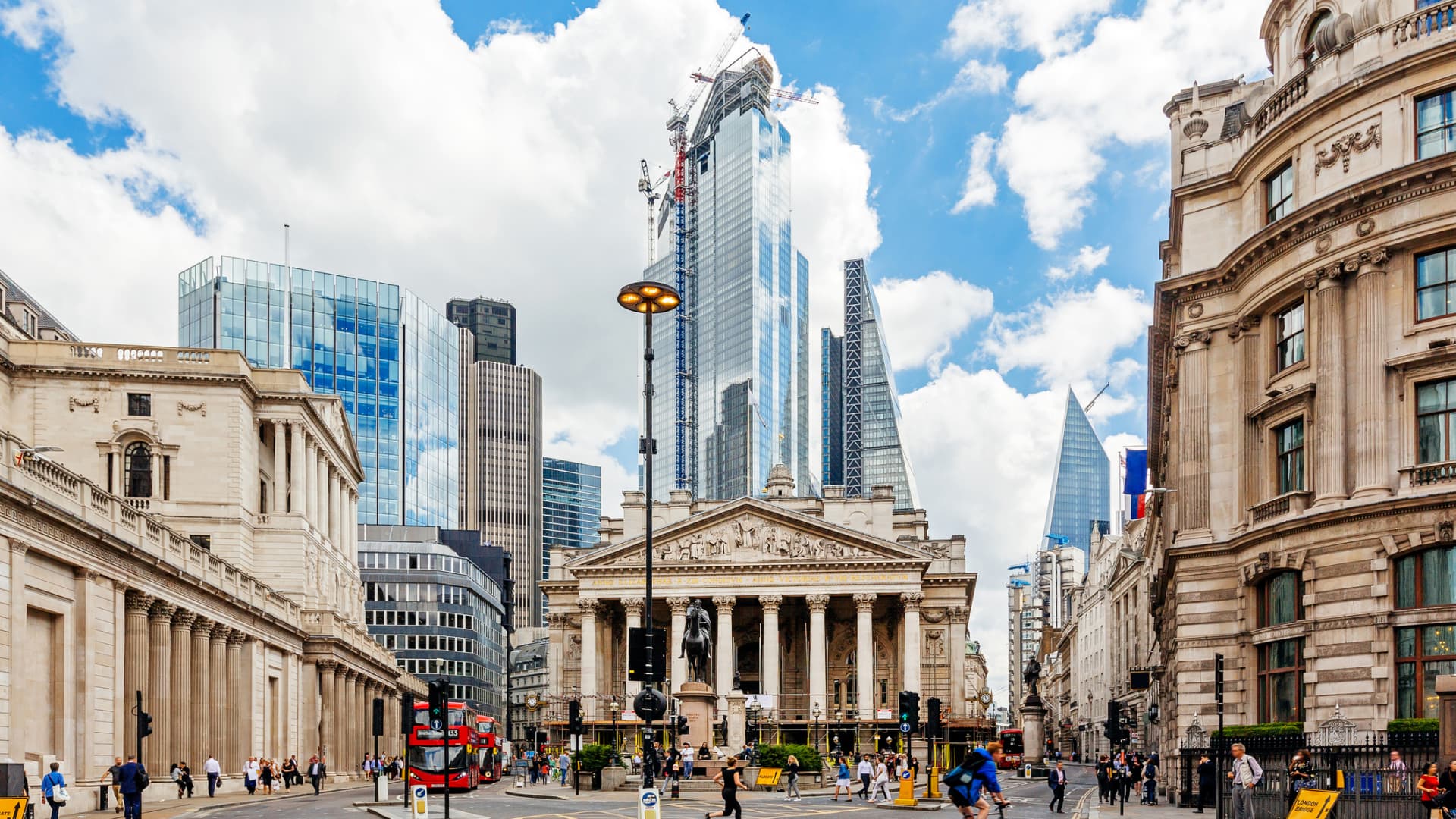JPMorgan warns UK could see ‘hard landing,’ says interest rates could hit 7%

In June, the Bank of England increased interest rates for the 13th time in a row.
Alexander Spatari | Moment | Getty Images
The Bank of England could increase interest rates to 7% as it tries to tame inflation, according to JP Morgan, which said the risks of a hard landing for the economy are also rising.
The U.S. investment bank expects rates to peak at 5.75% by November, but cautions that they could go higher “under some scenarios,” hitting as much as 7%.
The analysis from JP Morgan Economist Allan Monks comes as U.K. homeowners face a significant jump in borrowing costs as they’re usually linked to the central bank’s main interest rate.
In June, the central bank increased interest rates for the 13th time in a row, by 50 basis points — more than many expected — to 5%.
“Persistent surprises have intensified the pressure on the BOE to deliver significant additional policy tightening, and we now look for a 5.75% terminal rate by November,” Monks wrote in a note to clients dated June 30.
“We assume the BOE will pivot to a ‘high-for-long’ strategy with the intention of allowing the lags in transmission to finish off the job.”
He added: “This alone raises the risks of a hard landing next year, but we recognise that the policy rate required to control inflation is proving to be higher than most had expected.”
British consumers are facing a challenging environment, with increases in food, energy and mortgage costs hitting their wallets hard. On Tuesday, the Organization for Economic Cooperation and Development said the U.K. is the only country among the G7 where inflation is still rising.
Official figures for May showed that prices rose by an annual 8.7% in May — more than predicted by economists, and significantly higher than the BOE’s target of 2%.
JPMorgan’s Monks said that, looking ahead, a number of factors could cause the central bank to hike rates beyond expectations.
“High inflation could prompt a broader rise in inflation expectations as psychology shifts and a sustained wage-price spiral sets in. Even if longer-term measures remain anchored, elevated short-term expectations could also create a more persistent problem,” he wrote.
“This could force the BOE into raising rates above our forecast in order to ensure real rates turn sufficiently positive to short circuit this dynamic.”
‘Very difficult choices’
In an interview with the BBC broadcast Thursday, BOE Governor Andrew Bailey acknowledged that people were “having to make very difficult choices about what they buy, what they need for their … lives.”
“We want to get … inflation back to where it needs to be, and then we can obviously assess what level … interest rates should be at going forwards,” Bailey said.
“It’s hard and … I understand very much the difficulties that people face — unfortunately, this is how we have to get inflation down,” he added.
“And what I will say is, if we don’t get inflation down, if it keeps going on, it gets worse, it really gets worse, and we’ll have to put interest rates up more.”









